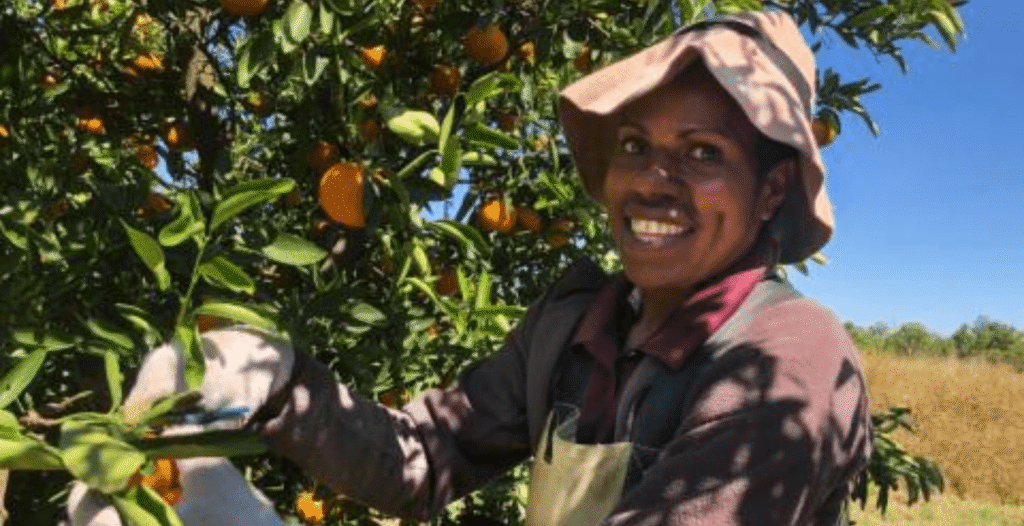Detailed Guide to Recruiting Workers from Timor-Leste, through the PALM Scheme: For Australian Employers
Introduction
Australia’s growing economy continues to face significant labour shortages across multiple sectors, creating challenges for businesses striving to meet operational demands and growth targets. The Pacific Australia Labour Mobility (PALM) scheme offers a strategic solution by connecting Australian employers with workers from Pacific island nations and Timor-Leste when local workers are unavailable.
For employers considering international recruitment options, Timor-Leste represents a particularly valuable source of reliable, hardworking employees with a strong record of successful placements across Australian industries. Timorese workers have established an excellent reputation in agriculture, hospitality, meat processing, and various other sectors, demonstrating strong work ethics, adaptability, and commitment.
This guide provides recruiters, HR professionals, and business owners with everything needed to successfully navigate the PALM scheme specifically for recruiting workers from Timor-Leste. From understanding eligibility requirements and application processes, to managing ongoing employment relationships and ensuring compliance, we cover the entire journey of bringing Timorese talent to your Australian business.
- Introduction
- Understanding the PALM Scheme
- Why Choose Workers from Timor-Leste?
- Employer Eligibility Requirements
- The Application Process for Employers
- Recruiting Workers from Timor-Leste
- Employer Obligations and Worker Support
- Visa and Immigration Processes
- Onboarding and Integration Best Practices
- Managing Ongoing Employment
- Cost-Benefit Analysis
- Compliance and Reporting
- Success Stories and Case Studies
- Conclusion
- Next Steps for Interested Employers
- About the Authors
- Additional Resources

Understanding the PALM Scheme
What is the Pacific Australia Labour Mobility (PALM) Scheme?
The Pacific Australia Labour Mobility (PALM) scheme is a Australian Government initiative designed to address workforce shortages in Australian businesses while supporting economic development in Pacific island countries and Timor-Leste. The scheme allows approved Australian employers to recruit workers when there are insufficient local workers available.
The PALM scheme evolved from the consolidation of two previous programs: the Seasonal Worker Programme (SWP) and the Pacific Labour Scheme (PLS). This integration created a more streamlined, efficient system with a single application process for employers seeking to access both short-term and long-term workers.
Key Features of the PALM Scheme
The PALM scheme offers two distinct worker cohorts:
- Short-term workers: Available for up to 9 months, ideal for seasonal or temporary labour needs
- Long-term workers: Available for periods between one and four years, suitable for ongoing positions requiring stability and skill development
This flexibility allows employers to match their recruitment strategy to specific business needs, whether addressing seasonal peaks or filling persistent vacancies in their permanent workforce.
Industries and Geographic Eligibility
The PALM scheme serves various industries with demonstrated labour shortages. While employers in the agriculture sector and select agriculture-related food product manufacturing can be based anywhere in Australia, businesses in other sectors must be located in regional or rural areas. Eligible industries include:
- Agriculture (nationwide)
- Horticulture (nationwide)
- Meat processing (nationwide)
- Fisheries (nationwide)
- Hospitality and tourism (regional/rural only)
- Aged care and disability services (regional/rural only)
- Construction (regional/rural only)
- Forestry (regional/rural only)
- Manufacturing (regional/rural only)
This geographic requirement reflects the scheme’s dual purpose of addressing critical labour shortages while supporting regional development across Australia.

Why Choose Workers from Timor-Leste?
Proven Track Record in Australian Workplaces
Timor-Leste has established a strong reputation within the PALM scheme, with workers consistently demonstrating reliability, adaptability, and strong work ethics. Australian employers across multiple sectors report high satisfaction with Timorese workers, noting their willingness to learn, friendly demeanor, and respectful approach to workplace relationships.
“Timorese workers have transformed our business,” says James Harrington, operations manager at a large horticultural enterprise in Queensland. “Their reliability, attention to detail, and positive attitude have not only filled our labour gaps but actually improved our overall productivity and workplace culture.”
Cultural Considerations and Work Ethic
Timor-Leste’s unique history and cultural background contribute to several workplace advantages:
- Strong community values: Timorese culture emphasises community cooperation and mutual support, translating to excellent teamwork in workplace settings.
- Resilience and adaptability: Having navigated significant national challenges, Timorese workers often demonstrate remarkable resilience and adaptability to new environments.
- Respect for authority: Traditional respect for leadership structures typically results in good relationships with management and supervisors.
- Work motivation: Many Timorese workers are motivated by the opportunity to support extended family networks back home, contributing to high levels of commitment and reliability.
Language and Communication
While English proficiency varies among Timorese workers, many have basic to intermediate English skills. Timor-Leste’s official languages are Tetum and Portuguese, with Indonesian and English also widely understood, particularly among younger generations.
Employers report that language barriers are generally manageable and often improve rapidly once workers are immersed in an English-speaking environment. Simple communication strategies, visual aids, and translation tools can effectively bridge initial language gaps.
Industry-Specific Experience
Timor-Leste has a predominantly agricultural economy, with many workers bringing relevant experience in farming, fishing, and food processing. Additionally, the country’s growing tourism sector has created a pool of workers with hospitality experience.
The National Directorate of Foreign Employment in Timor-Leste (SEFOPE) maintains a work-ready pool of pre-screened candidates with various skill sets, making it easier for Australian employers to match workers to specific role requirements.

Employer Eligibility Requirements
Business Structure and Financial Requirements
To become an approved PALM scheme employer, your business must:
- Be a registered Australian business with a valid ABN/ACN
- Be financially viable and able to demonstrate the capacity to pay workers
- Have been operating for at least 12 months (in most cases)
- Not have any outstanding compliance issues with workplace laws
- Not have any directors, partners, or senior managers who are undischarged bankrupts
Financial assessments typically include review of recent financial statements, tax records, and evidence of ongoing business operations.
Compliance with Australian Workplace Laws
Employers must demonstrate full compliance with:
- Fair Work Act 2009 and relevant awards or enterprise agreements
- Work Health and Safety legislation
- Workers’ compensation requirements
- Superannuation guarantee obligations
- Migration legislation
Any history of non-compliance with these laws may result in application rejection. Employers with previous breaches must demonstrate remediation and improved compliance systems.
Industry-Specific Requirements
Depending on your industry, additional requirements may apply:
- Agriculture/Horticulture: Evidence of land ownership or lease agreements, production forecasts
- Hospitality: Liquor licenses (if applicable), food safety certifications
- Aged Care: Appropriate accreditation and quality standards compliance
- Construction: Relevant industry licenses and certifications
Regional/Rural Location Requirements
For non-agricultural businesses, you must demonstrate that your operations are based in a regional or rural location as defined by the Australian Statistical Geography Standard. This typically includes all areas outside major metropolitan centers.
The Application Process for Employers
Step-by-Step Application Guide
- Pre-application assessment: Review eligibility criteria and gather required documentation
- Online application submission: Complete the comprehensive online application form
- Documentation provision: Submit all required supporting documents
- Assessment process: Your application undergoes review by PALM scheme administrators
- Site visits and interviews: Potential inspection of facilities and management interviews
- Approval decision: Receive determination on your application status
- Deed of Agreement: If approved, execute formal agreement with the Australian Government
Documentation Requirements
Prepare the following documentation for your application:
- Business registration documents
- Financial statements for the past two years
- Evidence of compliance with workplace laws
- Accommodation plans for workers
- Transportation arrangements
- Pastoral care and welfare support plans
- Job descriptions for positions to be filled
- Evidence of labour market testing
- Industry-specific certifications and licenses
Timeline and Processing
The application process typically takes at least three months from submission to approval decision. Complex applications or those requiring additional information may take longer. Plan your recruitment needs accordingly, allowing sufficient lead time before your anticipated worker start dates.
Application Tips from Successful Employers
- Be thorough: Incomplete applications are the most common reason for delays
- Demonstrate genuine need: Clearly articulate why local workers cannot fill your positions
- Detail your support plans: Comprehensive worker welfare plans strengthen your application
- Seek assistance early: Contact PALM scheme administrators with questions before submitting
- Consider using approved labour hire: For first-time employers, working through an approved labour hire company can simplify the process
Recruiting Workers from Timor-Leste
Working with SEFOPE
The National Directorate of Foreign Employment (SEFOPE) is the key government agency in Timor-Leste responsible for coordinating worker recruitment under the PALM scheme. Once approved as a PALM scheme employer, you can recruit workers through SEFOPE’s work-ready pool.
For seasonal or short-term roles, contact SEFOPE via email at swp.lsu.tl@gmail.com. For longer-term roles, use pls.lsu.tl@gmail.com.
The Recruitment Process
- Job specification: Provide detailed job descriptions, including required skills, physical demands, and working conditions
- Candidate matching: SEFOPE identifies suitable candidates from their work-ready pool
- Interview process: Conduct interviews via video conference or in-person if visiting Timor-Leste
- Selection and offer: Select preferred candidates and make formal job offers
- Pre-departure preparation: SEFOPE coordinates worker preparation, including medical checks and briefings
- Visa processing: Support workers through the visa application process
- Travel arrangements: Coordinate arrival dates and initial reception
Direct Recruitment vs. Labour Hire
Employers have two main options for accessing Timorese workers:
Direct recruitment:
- Complete control over worker selection and management
- Direct employment relationship
- Full responsibility for all worker welfare obligations
- Typically lower ongoing costs but higher initial administrative burden
Approved labour hire:
- Simplified process for employers new to the scheme
- Labour hire company handles most administrative requirements
- Shared or transferred welfare obligations
- Higher ongoing costs but reduced administrative complexity
For first-time PALM scheme employers, using an approved labour hire company can provide valuable guidance while you learn the system. Many employers transition to direct recruitment after gaining experience with the scheme.
Employer Obligations and Worker Support
Accommodation Requirements
Employers must ensure workers have access to suitable accommodation that:
- Meets all relevant building codes and safety standards
- Provides reasonable privacy and security
- Includes appropriate bathroom and kitchen facilities
- Is located within reasonable distance from the workplace
- Is affordable (typically not exceeding 15% of wages)
Options include employer-provided housing, assistance finding rental properties, or partnerships with local accommodation providers.
Transportation Arrangements
Employers must arrange or facilitate:
- Airport pickup upon arrival
- Transportation between accommodation and workplace
- Access to transportation for essential services (medical, shopping, etc.)
- Return transportation to the airport at the end of employment
Healthcare Access
Workers under the PALM scheme must have adequate health insurance coverage. Employers must:
- Arrange and pay for initial health insurance (workers typically reimburse this cost over time)
- Ensure workers understand how to access healthcare services
- Provide assistance with medical appointments when needed
- Maintain appropriate injury management and return-to-work processes
Pastoral Care Obligations
Comprehensive pastoral care is a critical requirement, including:
- Initial orientation to the local community
- Banking and financial management assistance
- Emergency contact systems
- Cultural and recreational activities
- Communication facilities to contact family
- Conflict resolution mechanisms
- Access to religious services if desired
- Mental health and wellbeing support
Cultural Integration Support
Successful employers implement cultural integration strategies such as:
- Cultural awareness training for existing staff
- Buddy or mentor systems pairing Timorese workers with experienced local employees
- Inclusion of Timorese workers in team activities and social events
- Recognition of significant cultural or national days
- Accommodation of religious practices where reasonable
Visa and Immigration Processes
Visa Subclasses for PALM Scheme Workers
Timorese workers typically enter Australia under the following visa subclasses:
- Subclass 403 (Temporary Work (International Relations)) for the PALM scheme
- Specific streams exist for seasonal and longer-term workers
Employer Responsibilities in the Visa Process
As an employer, you must:
- Provide accurate job details and employment conditions
- Issue formal job offers and employment contracts
- Support workers’ visa applications with required documentation
- Comply with all sponsorship obligations
- Maintain records of visa and work rights status
- Report certain events or changes to the Department of Home Affairs
Documentation and Health Requirements
Workers will need to complete:
- Visa application forms
- Medical examinations
- Character assessments
- Biometric collection
- Evidence of employment offer
- Proof of English language capability (for some positions)
Costs and Financial Considerations
Employers are typically responsible for:
- Initial visa application fees (often recoverable through agreed deductions)
- International airfares to Australia (partially recoverable through agreed deductions)
- Domestic transportation upon arrival
- Initial accommodation setup costs
Workers generally contribute to:
- Passport costs
- Pre-departure medical examinations
- Personal items and clothing
- Ongoing accommodation costs
Onboarding and Integration Best Practices
Pre-Arrival Preparation
Before workers arrive:
- Prepare detailed welcome packs with essential information
- Set up accommodation with basic necessities
- Brief existing staff about new team members
- Arrange airport pickup and first-day schedules
- Prepare orientation materials in simple English or with visual aids
First-Week Orientation Essentials
A comprehensive orientation program should include:
- Workplace health and safety training
- Tour of facilities and introduction to key personnel
- Explanation of payment systems and banking arrangements
- Overview of local community services and amenities
- Emergency procedures and contact information
- Cultural orientation to Australian workplace norms
- Clarification of employment terms and conditions
Building an Inclusive Workplace
Successful integration strategies include:
- Recognising and respecting cultural differences
- Encouraging two-way cultural exchange
- Providing language support where needed
- Creating opportunities for social interaction
- Establishing clear communication channels for concerns
- Celebrating diversity as a workplace strength
Managing Ongoing Employment
Performance Management Approaches
Effective performance management for Timorese workers often includes:
- Clear visual demonstrations of tasks and expectations
- Regular, constructive feedback using simple language
- Recognition of achievements and improvements
- Culturally sensitive correction of performance issues
- Opportunities for skill development and advancement
- Regular check-ins on wellbeing and job satisfaction
Extension and Redeployment Options
Workers performing well may be eligible for:
- Extension of their current placement (within visa limitations)
- Redeployment to different roles within your organisation
- Potential return in subsequent seasons (for seasonal workers)
- Skills development pathways to more advanced positions
Return Arrangements
At the conclusion of employment:
- Provide sufficient notice of end dates
- Assist with return travel arrangements
- Conduct exit interviews and provide references
- Maintain contact for potential future employment
- Facilitate smooth transition back to Timor-Leste
Cost-Benefit Analysis
Investment and Returns
While the PALM scheme involves certain costs and administrative requirements, employers consistently report strong return on investment through:
- Reliable workforce availability during critical periods
- Reduced recruitment and training costs over time (particularly with returning workers)
- Lower turnover rates compared to some local workforce segments
- Productivity benefits from motivated, committed workers
- Positive impacts on workplace culture and team dynamics
Comparative Cost Structure
A typical cost breakdown for a Timorese worker might include:
Initial costs:
- Visa application fees: Approximately $315 per worker
- Airfares: $1,500-$2,500 (partially recoverable)
- Initial accommodation setup: $200-$500 per worker
- Airport transfers and initial transportation: $100-$300
Ongoing costs:
- Award-compliant wages (industry-dependent)
- Superannuation contributions (currently 11%)
- Workers’ compensation insurance
- Administrative overhead for compliance and reporting
- Pastoral care and support resources
Many employers find that while initial costs are higher than local recruitment, the reliability and productivity of Timorese workers, combined with lower turnover rates, create favorable economics over the medium to long term.
Compliance and Reporting
Ongoing Compliance Requirements
PALM scheme employers must maintain:
- Accurate records of all worker details and visa information
- Compliance with Fair Work Act and relevant awards
- Adherence to work health and safety regulations
- Proper superannuation and taxation arrangements
- Regular reporting to scheme administrators
- Appropriate accommodation and welfare standards
Reporting Obligations
Regular reporting includes:
- Worker arrival confirmation
- Any workplace incidents or injuries
- Changes to employment arrangements
- Worker departures and completions
- Any breaches of visa conditions
- Updates to business circumstances affecting employment
Managing Compliance Risks
Best practices for maintaining compliance include:
- Regular internal audits of PALM scheme requirements
- Designated staff responsible for scheme compliance
- Clear documentation systems for all worker-related matters
- Open communication channels with scheme administrators
- Prompt addressing of any identified issues
- Regular training updates for supervisors and managers
Success Stories and Case Studies
Agricultural Success: Central Queensland Citrus
A large citrus operation in Central Queensland has employed Timorese workers for five consecutive seasons, reporting:
- 95% return rate of workers from previous seasons
- 30% increase in picking efficiency compared to casual local workforce
- Significant reduction in training time with returning workers
- Development of team leaders from within the Timorese workforce
- Cultural exchange benefits enriching the entire organisation
Hospitality Innovation: Regional Victoria
A hospitality group operating three venues in regional Victoria integrated Timorese workers into their operations with remarkable results:
- Successfully filled 12 positions vacant for over six months
- Developed a cultural training program that improved service across all venues
- Created a pathway for Timorese workers to gain formal qualifications
- Established a reputation as an employer of choice in their region
- Expanded operations based on workforce stability
Meat Processing Productivity: South Australia
A meat processing facility in South Australia reports:
- Reduced turnover from 70% to 15% annually after introducing Timorese workers
- Improved production consistency and quality
- Development of specialised skills among long-term Timorese employees
- Positive integration with existing multicultural workforce
- Community enrichment through cultural events and activities
Conclusion
The PALM scheme offers Australian employers a valuable opportunity to address workforce shortages while contributing to economic development in Timor-Leste. By understanding the requirements, processes, and best practices outlined in this guide, businesses can successfully navigate the scheme and build mutually beneficial employment relationships with Timorese workers.
The combination of Timorese workers’ strong work ethic, reliability, and adaptability with Australia’s need for committed workers creates a partnership with significant advantages for all parties. While the scheme requires careful planning and ongoing commitment to worker welfare, employers who invest in these relationships typically find substantial returns in workforce stability, productivity, and workplace culture.
For businesses facing persistent labour shortages, particularly in regional and rural areas, recruiting workers from Timor-Leste through the PALM scheme represents a strategic solution worth serious consideration.
Next Steps for Interested Employers
- Review the detailed eligibility requirements on the official PALM scheme website
- Assess your business needs and capacity to support international workers
- Gather the necessary documentation for application
- Consider connecting with current PALM scheme employers in your industry
- Contact the PALM scheme administrators with specific questions
- Begin the application process, allowing sufficient lead time
- Develop comprehensive worker support plans
- Prepare your existing workforce for successful integration
About the Authors
This guide was prepared by the Australian Recruitment and Immigration Specialists Association, drawing on expertise from certified migration agents, HR professionals, and employers with extensive experience in the PALM scheme. Our team specialises in supporting businesses to navigate international recruitment pathways and maximise the benefits of diverse workforces.
Additional Resources
- Official PALM Scheme Website
- Department of Foreign Affairs and Trade: Timor-Leste Information
- Fair Work Ombudsman: Employing Foreign Workers
- PALM Scheme Employer Hotline: palm@dewr.gov.au
- Timor-Leste National Directorate of Foreign Employment (SEFOPE)
For seasonal or short-term roles, contact SEFOPE via email at swp.lsu.tl@gmail.com. For longer-term roles, use pls.lsu.tl@gmail.com.


